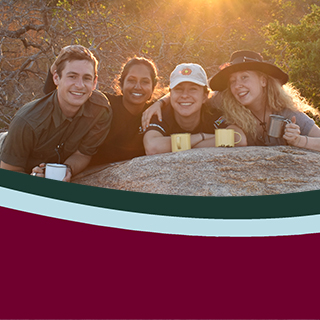Fall 2017 Seminars
Can Giving Change the World?: Engaging Social Responsibility through Philanthropy
Monday, Wednesday, Friday 11:00am-11:50am
Greg Larson, Communication Studies
This course examines the relationship between the individual and society by addressing the question: How do individuals and organizations address pressing and enduring social problems to create meaningful change? Through the lens of philanthropy, this course introduces students to social responsibility and some of the big problems facing society. We will learn about how philanthropists and social entrepreneurs are creatively combating the most pressing social problems such as poverty, environmental degradation, and disease at local, national and global levels. A large portion of the course is focused on a hands-on grant-making project where the class will explore community needs, solicit grant proposals, visit prospective grant finalists and, ultimately, give away $10,000 in real money to local nonprofits.
Migration and Refugees in the Modern World
Tuesday, Thursday 12:30pm-1:50pm
Gillian Glaes, History
Today, there are an estimated sixty million refugees on the move worldwide. This course will examine historical issues related to the contemporary migration crisis. To provide a comparative perspective, students will explore the history of refugees and migration through several case studies, ranging from Russia and interwar Europe to Cuba and Sudan. The course will ask students to compare different cases involving refugees, asylum seekers, and migrants. For example, students can evaluate the ways in which revolutions, such as those in Russia and Cuba, helped established a context in which many different groups sought exile in order to better understand how it is that Arab Spring and its consequences contributed to the current global refugee crisis.
Linguistic Diversity: Myths, Realities, Challenges and Solutions
Tuesday, Thursday 9:30am-10:50am
Leora Bar-el, Anthropology
There are over 6000 languages spoken across the world today. By some estimates, as many as 90% of the world’s languages will no longer be spoken by the end of this century. At the same time, dialect variation across regions, ethnicities, ages, and genders continues to increase. In this course we explore macro-level linguistic diversity (i.e. variation across languages), and micro-level linguistic diversity (i.e. variation within languages) across the globe. We assess the value of linguistic diversity to researchers, to communities throughout the world, and to humanity as a whole. We tackle several global challenges, such as (i) the threat to linguistic diversity, (ii) the perpetuation of language myths, (iii) the role of “standard” languages, and (iv) the impacts of linguistic discrimination, with the goal of generating and evaluating possible solutions.
The Internet and the Media in the Age of Globalization
Monday, Wednesday 2:00pm-3:20pm
Phyllis Ngai, Communication Studies
The Internet is transforming social and political practices, from shopping, research, voting and campaigning for policy change, protest and even revolution, to surveillance and even repression. The media remains instrumental in spreading news or propaganda, entertainment or soft power on a massive scale. Social media is embedded in almost every aspect of everyday life, allowing for constant and expansive networking at the grassroots while posing a challenge to governments, as societies become harder to govern. This seminar aims to engage students with questions about the impacts of these new information communication technologies in the age of globalization.
Who am I? Negotiating Identities
Monday, Wednesday 12:00pm-1:20pm
Kathy Kuipers, Sociology
Identities influence both our immediate interactions and our perceptions of our social world. We begin this interdisciplinary seminar as sociologists by exploring family and place for sources of our own identity. Then we take a closer look, through fiction and film, at how identities are linked to social groups—gender groups, cultural groups, and racial/ethnic groups. We ask how identities become salient within social contexts, and are enacted locally. Incorporating a more global perspective, we focus on how the presentation and perception of identities influences the negotiation of social relationships. We ask why we show different sides of ourselves in different situations; how our identities influence our ability to engage in social problem solving; and how we articulate and enact our identities, globally.
Why?
Tuesday, Thursday 2:00pm-3:20pm
Abhishek Chaterjee, Political Science
Brent Ryckman, Biological Sciences
How do human beings find out how things in the world work? The “world” here includes both the—so-called—“natural” world, and the “world” of humans (though the latter is really a part of the former). So, this course will ask students to consider if and to what extent there is common set of principles, or even a common spirit that guides all aspects of human inquiry, despite the apparently different methodological practices and goals of different fields or disciplines. Specific examples will be drawn from the instructors’ fields of expertise, social and the natural sciences.
Women's Rights and Women's Roles around the World
Monday, Wednesday, Friday 12:00pm-12:50pm
Beth Hubble, Women's, Gender and Sexuality Studies
This interdisciplinary course offers a comparative perspective on women’s participation in family, community, and political life around the world. In the first part of the course, students will learn about women’s oppression and organization in global context, emphasizing cross-cultural comparisons. Topics include women’s work, political activism, social welfare, reproductive rights, family violence, and sex trafficking. In the second part of the course, students will collaborate on designing a final service-learning project for public consumption. Examples include creating a website or blog; filming and editing a documentary; presenting at local schools; or designing, conducting, and reporting on a community needs survey.
